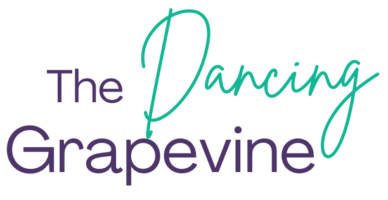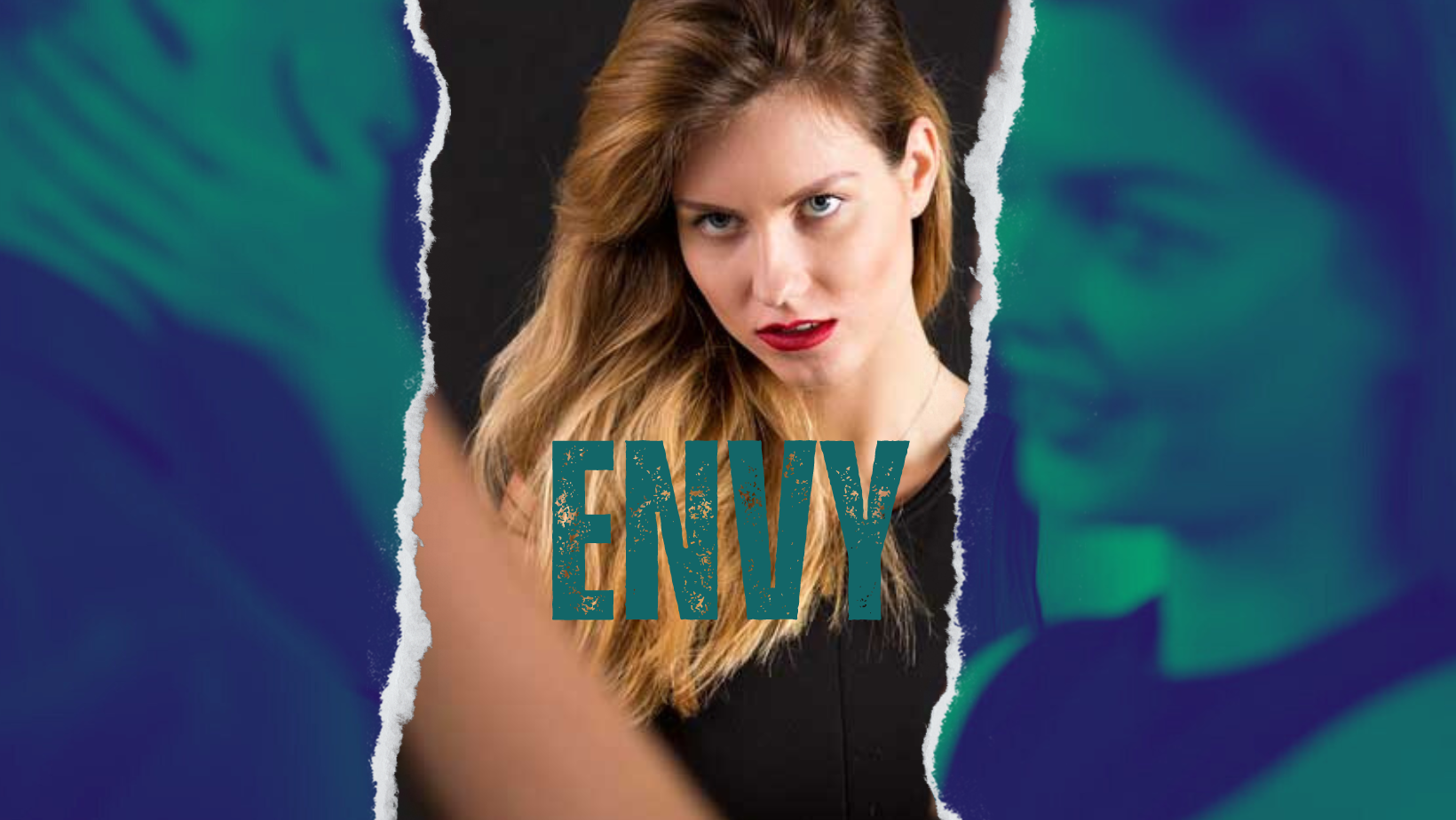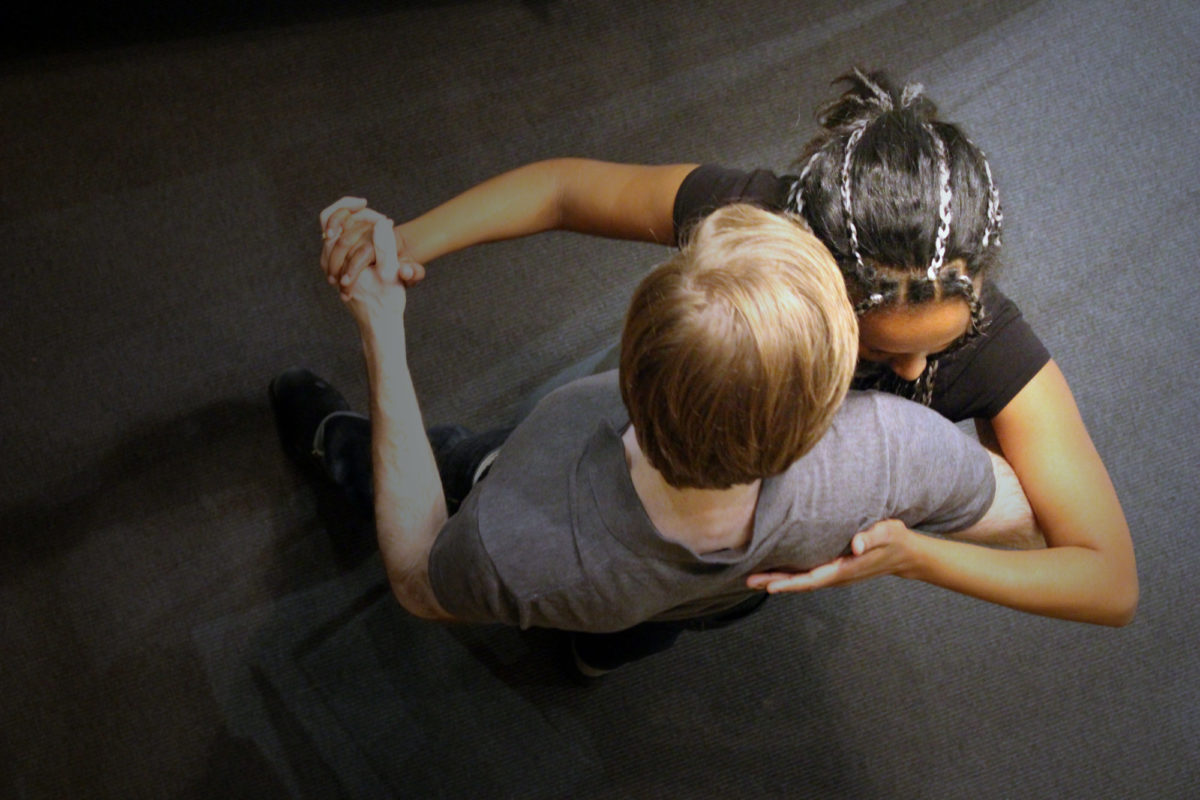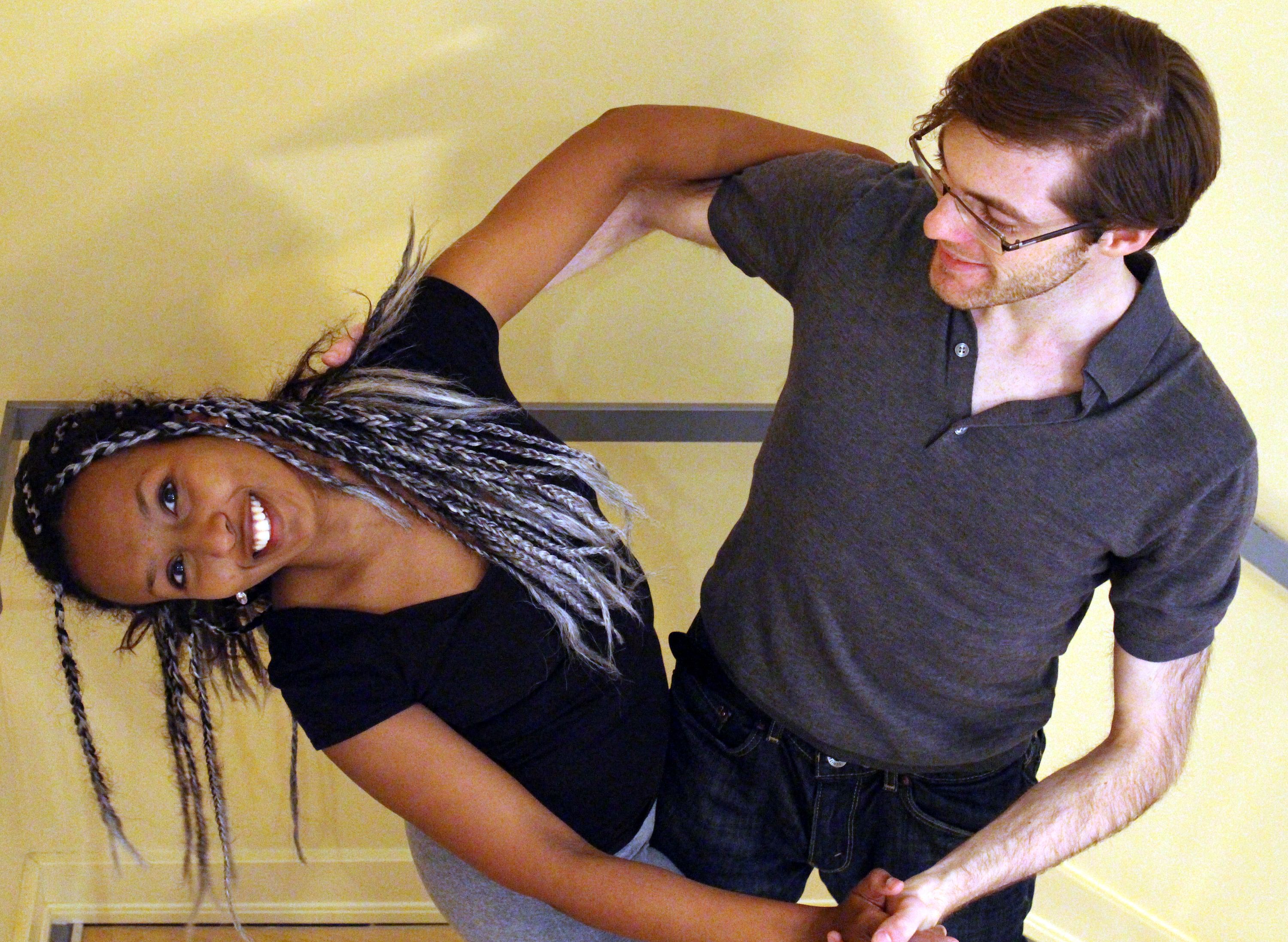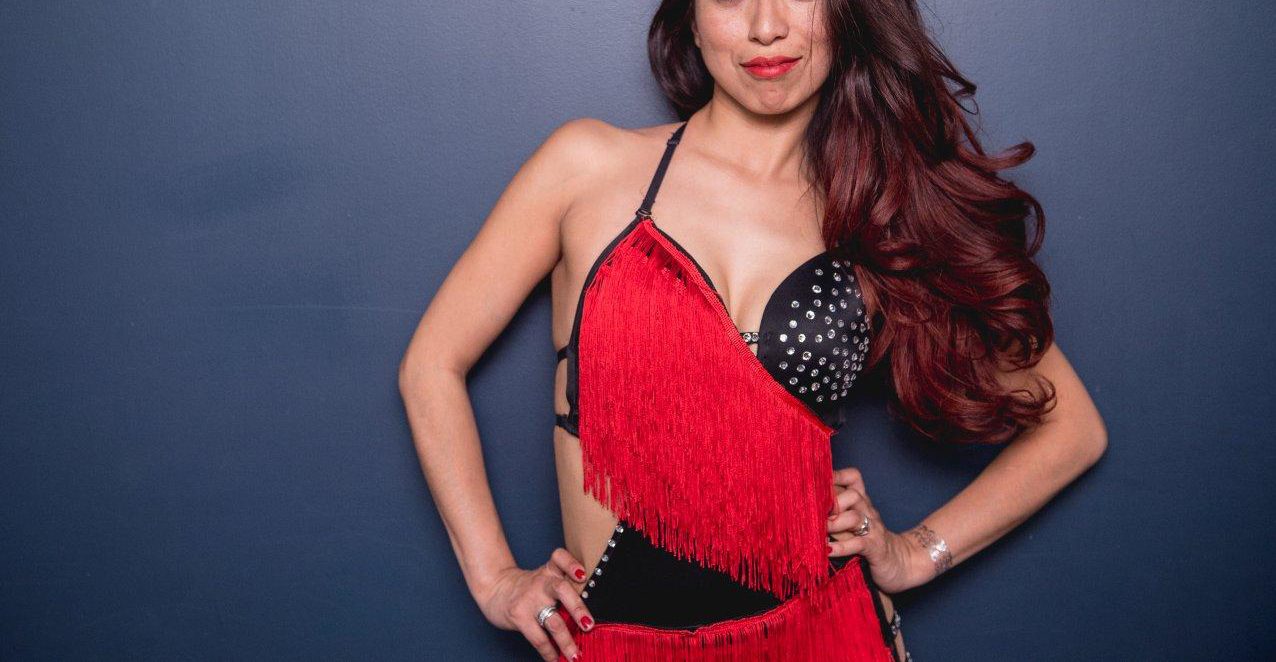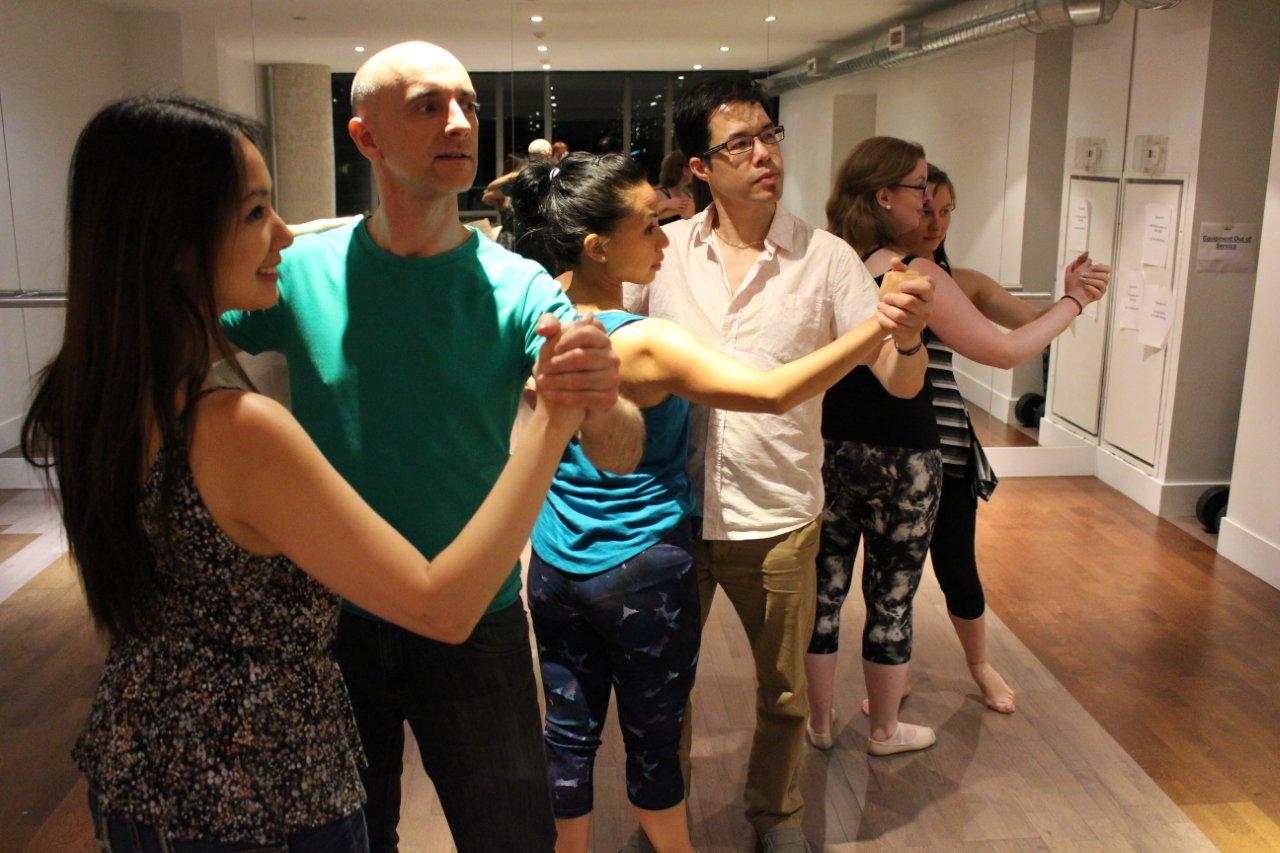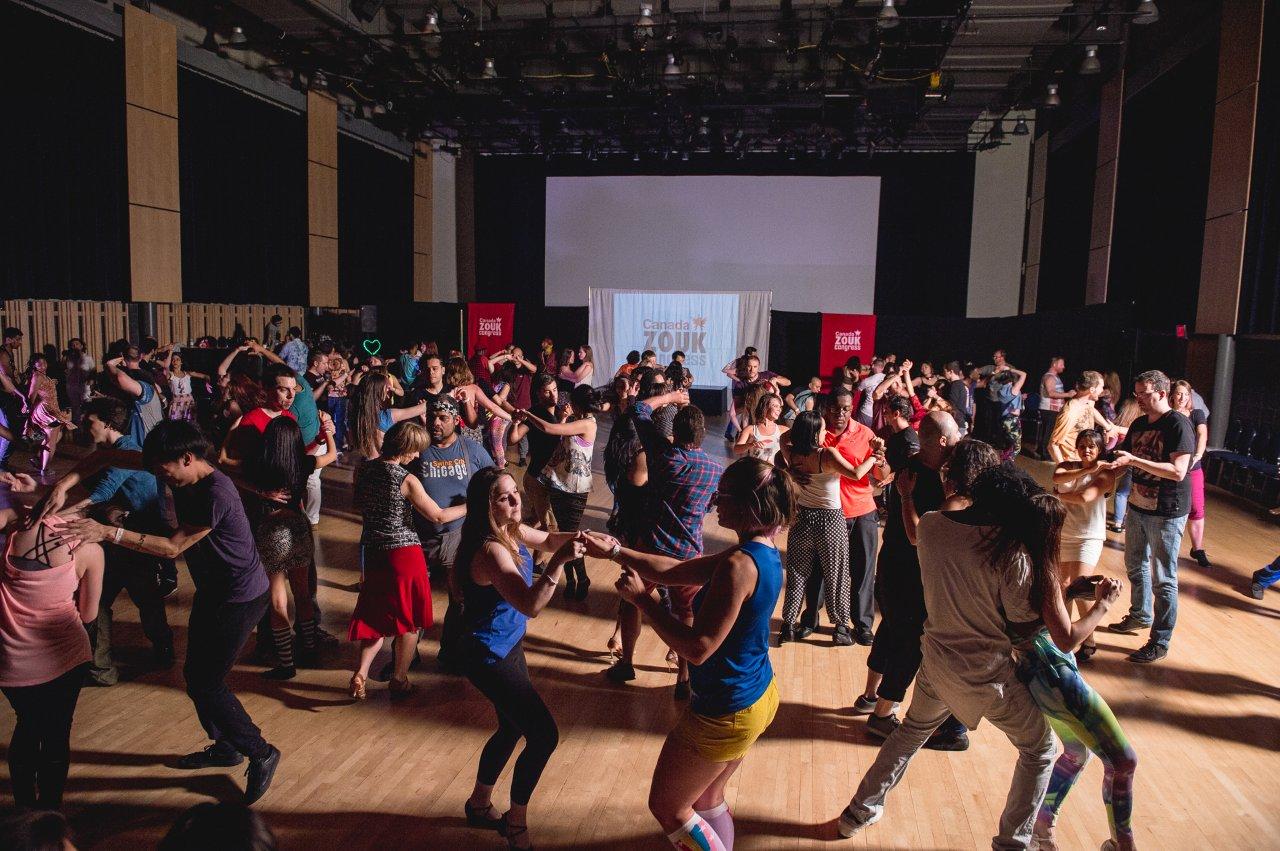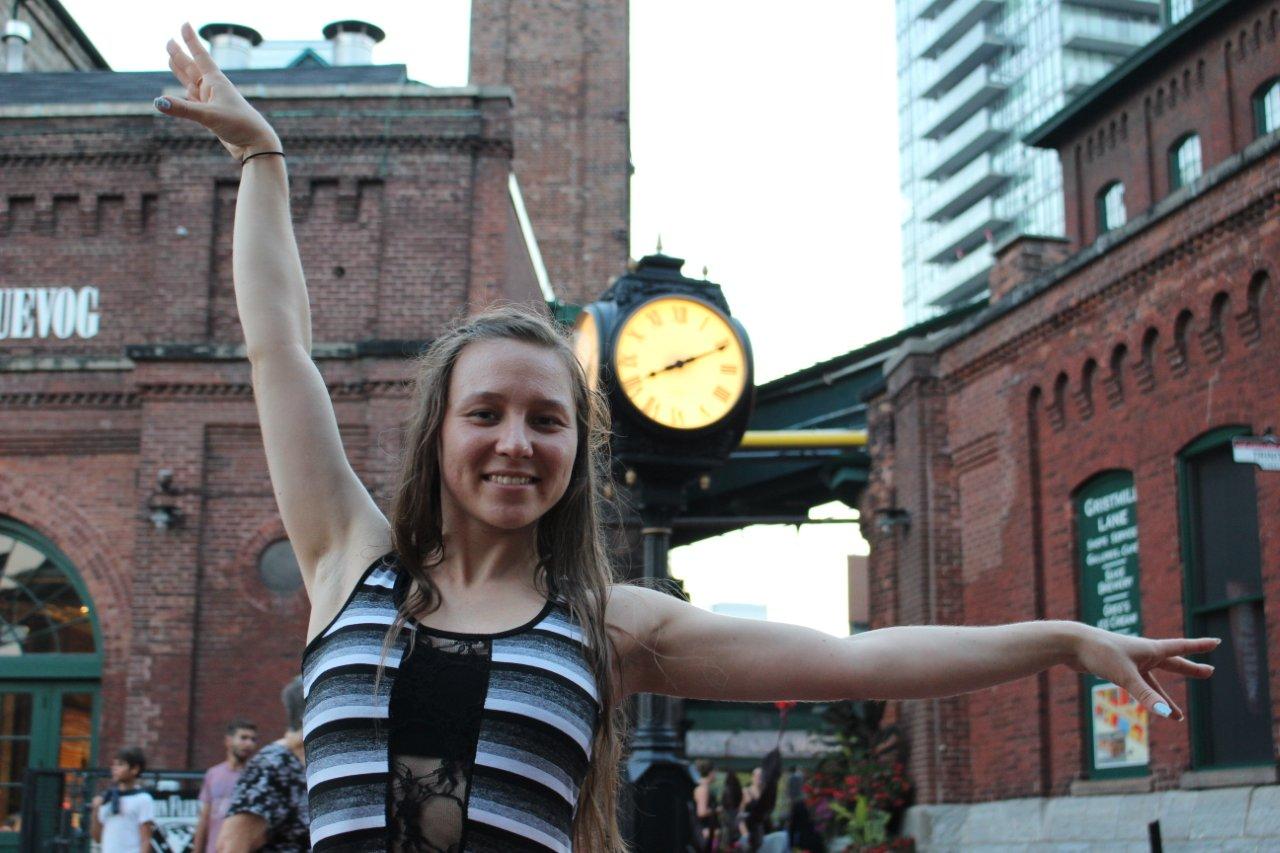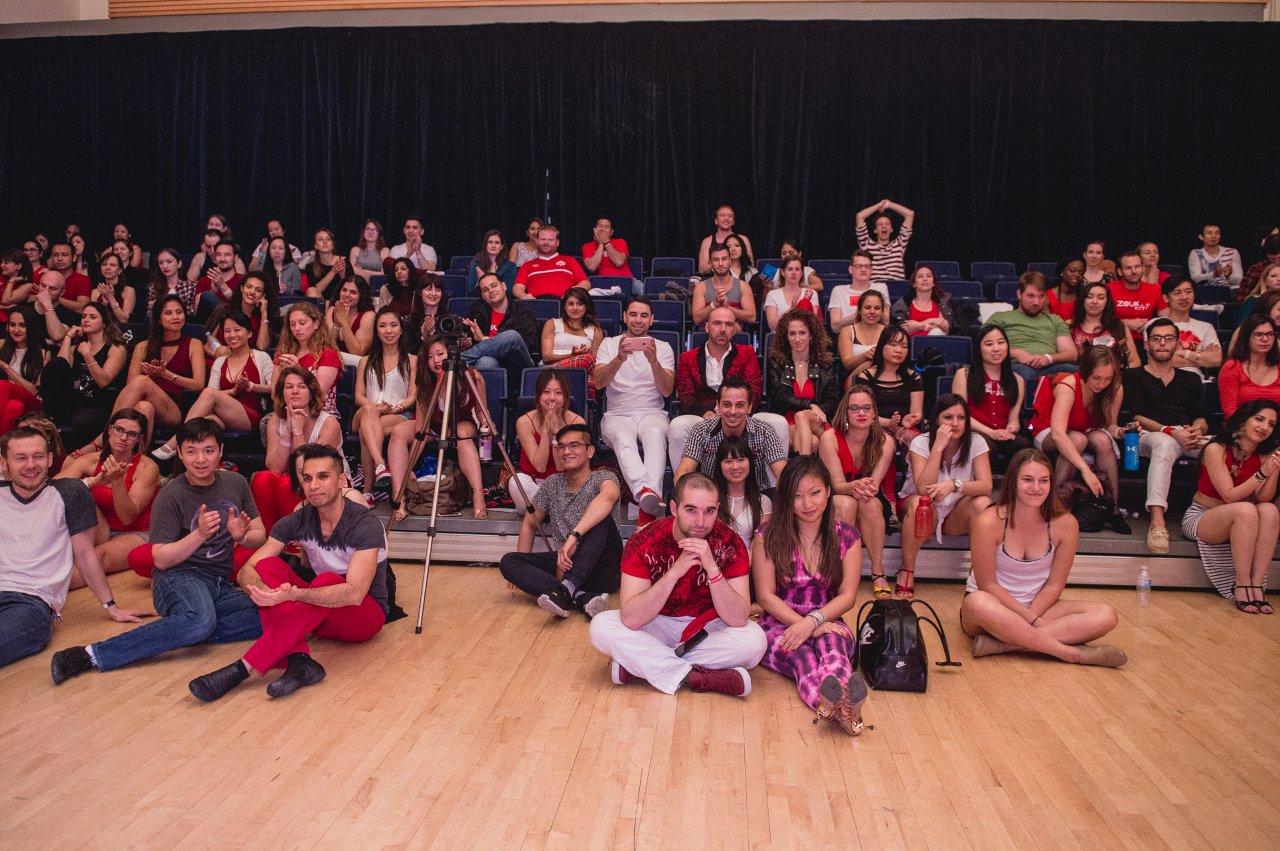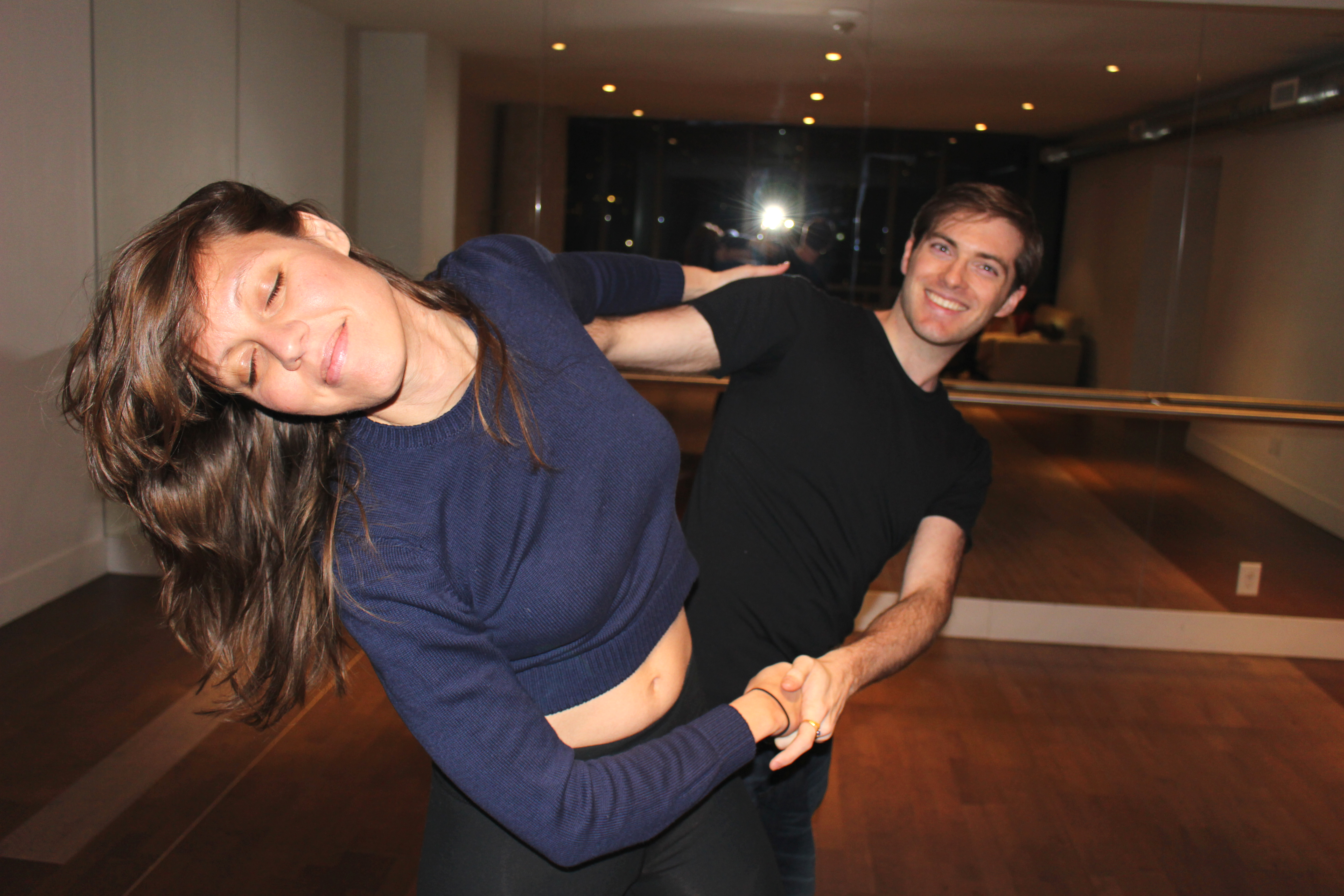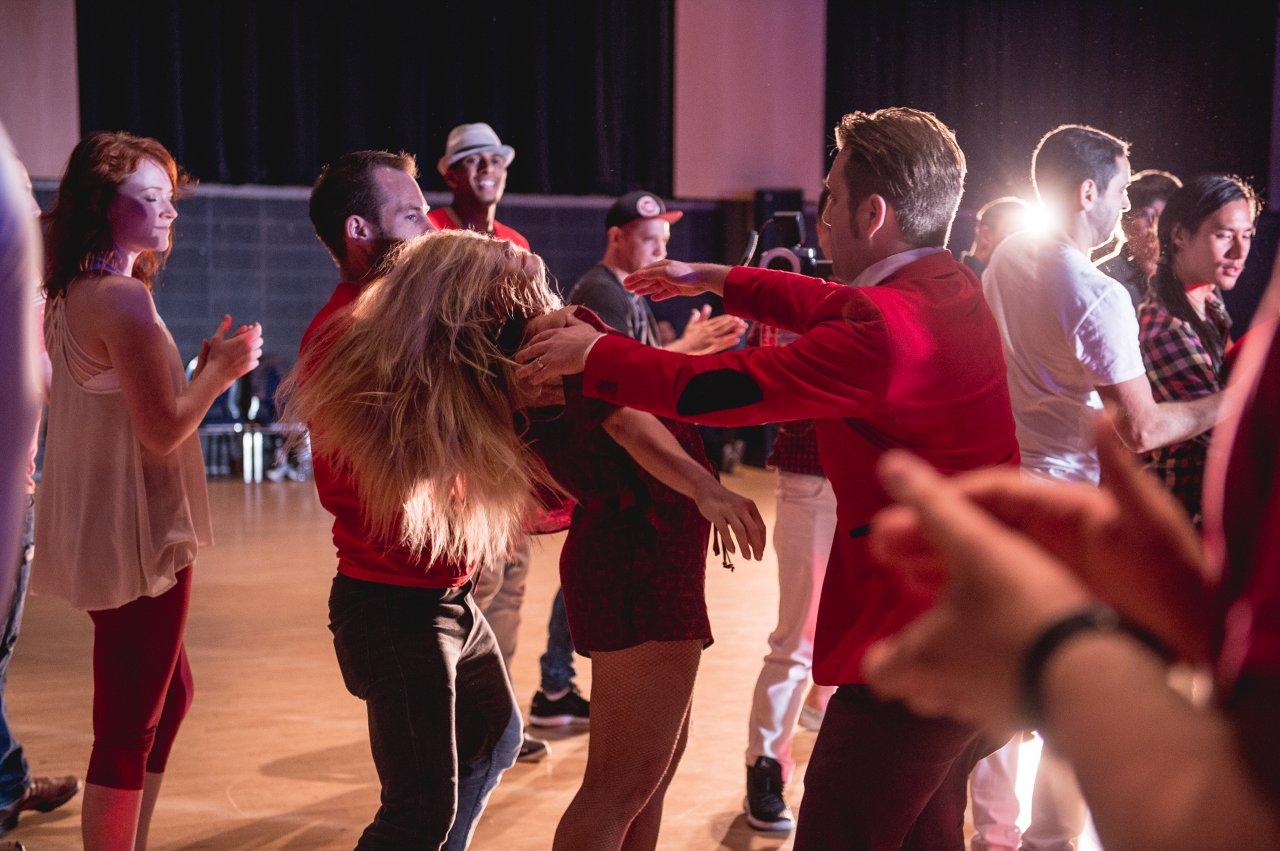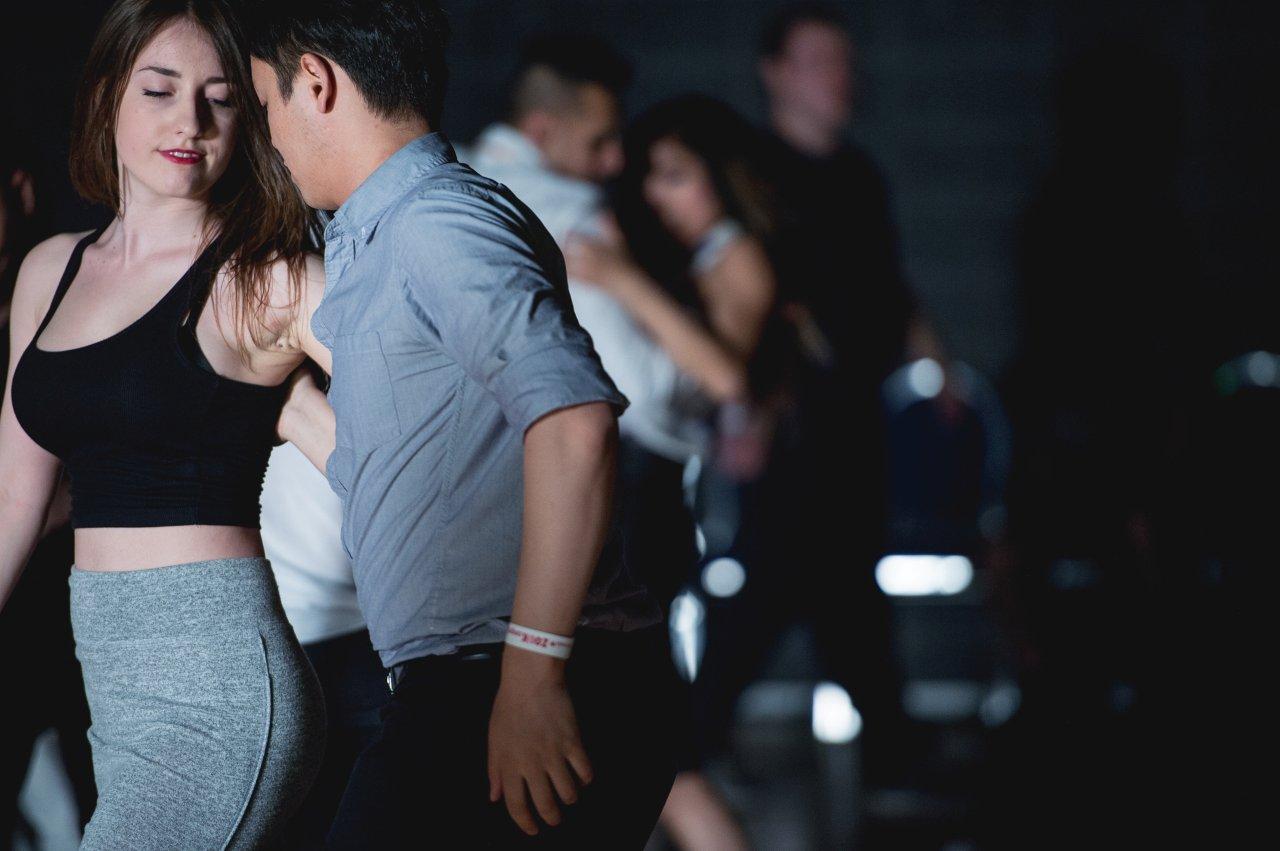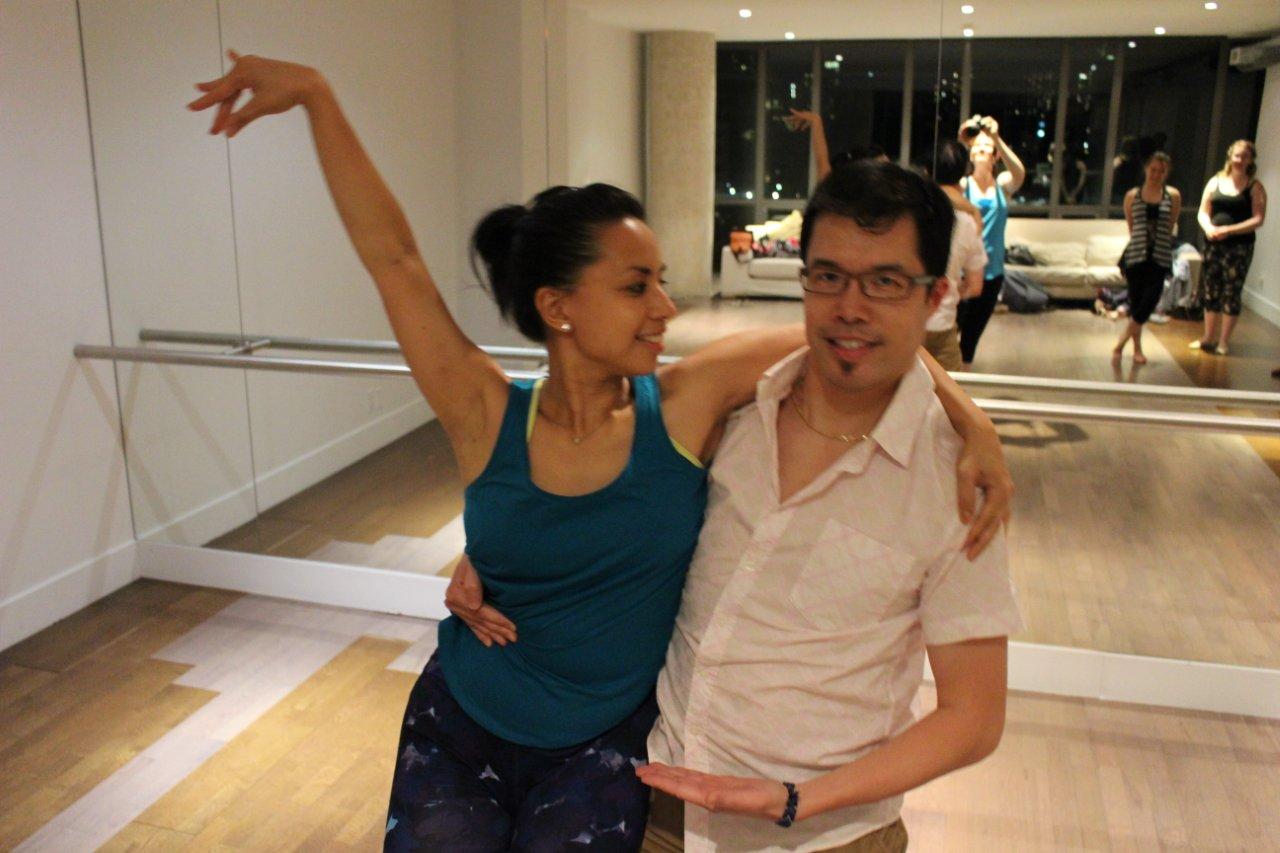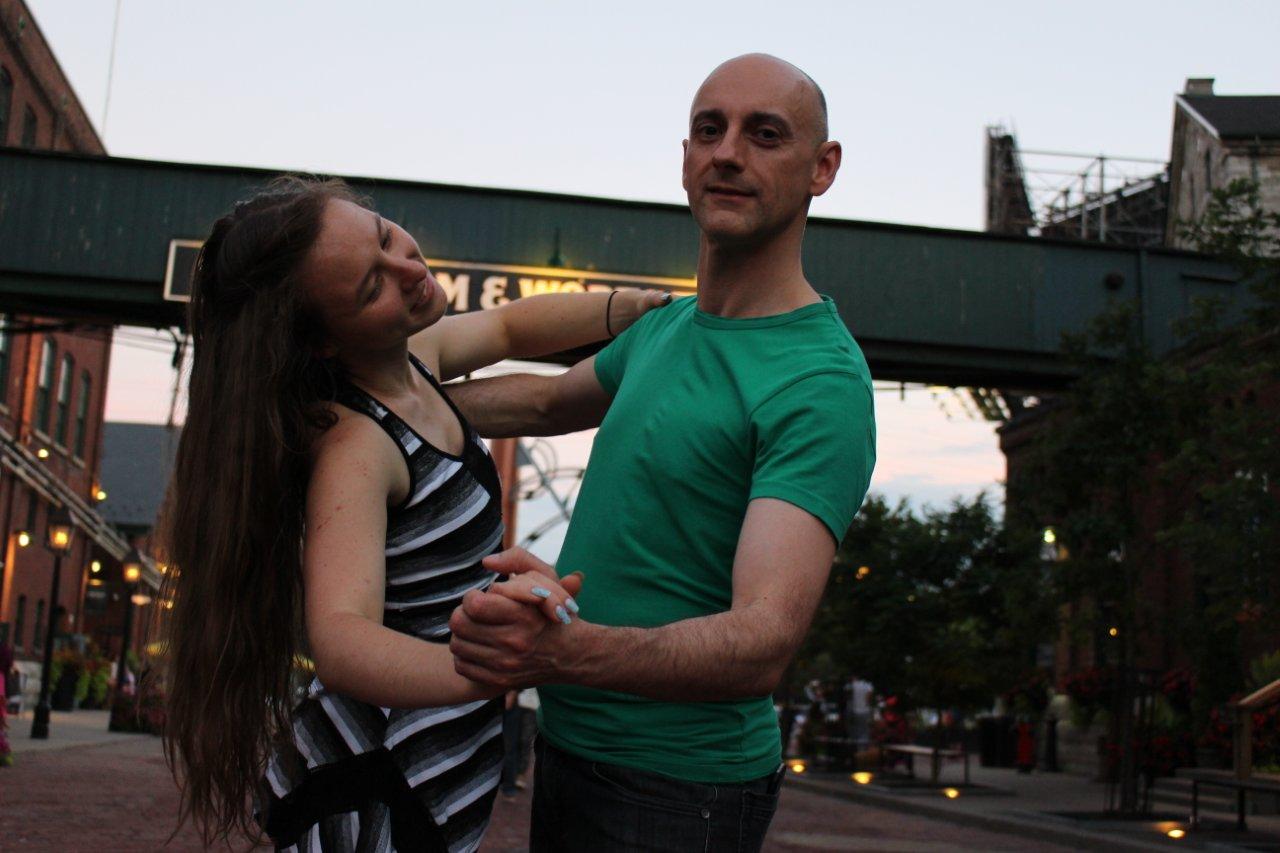Dance can cause a lot of emotional responses. A lot of the time, we focus on the joy; sometimes we call these “dance highs”. But, every high has a low. One of those lows can be envy. What triggers envy? The triggers for envy can be subtle or obvious, and can look very different depending on the person. You might feel envy: This isn’t an exhaustive list; jealousy can take many, many forms. Sometimes, that envy can coexist with very real prejudices. For example, young women who are considered stereotypically attractive – especially if they are also a strong dancer…
-
-
Have you ever had an unpleasant dance? Maybe your partner squeezed your hand too hard. Maybe they were generally off-time and a bit rough. What did you do? Did you fix your face into an unsatisfied scowl to teach them a lesson? If you did, you have engaged in what I call passive-aggressive feedback. What is passive-aggressive feedback Passive-aggressive feedback is when a dancer uses body language (or, in extreme cases, even words) to indicate to their partner how unhappy they are with the present situation, but does not offer any constructive information as to what the issue is or…
-
Over time, dance communities are moving towards a greater focus on follower empowerment. We are becoming more aware of the value followers bring to a dance, and the need to teach to both followers and leaders. But, some people are still a little bit foggy on what follower empowerment is. What follower empowerment is not As we explore what follower empowerment is, we need to remember that it is not about making followers more important than the leader, or insinuating that leaders are the bad guys. Rather, by giving more weight to the responsibilities and importance of the follower role, it actually reduces the…
-
For many, a fair dance world would be one in which hard work + time = a better dancer. The person who has taken two classes a week religiously for four years would necessarily be stronger than a dancer who has taken an occasional private or event workshop in the same length of time. In reality, this isn’t how things work. Why certain people get better faster Very often, people excel quicker than their peers for one of a few reasons: Physical conditions (which may include age, flexibility, strength, health, etc) Movement experience How they think Quality of instruction/dances Talent Accepting Progress…
-
We trust dance teachers to tell us the “right” way to dance. Whether it’s how to place your foot, establish connection, or execute general body mechanics, we use their guidance to grow and learn. But, what happens if our teachers tell us something wrong? How Teachers can be Wrong There are several reasons that a teacher may be “wrong”. Some teachers have few access to resources, and therefore are ‘filling in’ the blanks that they don’t yet understand themselves. Some are stubborn, and refuse to seek out correct answers for problems in their methodologies. And, some are mistakenly bringing in elements…
-
Question: What do all the following scenarios have in common? A follow is encouraged to walk off the floor if their lead unintentionally executes something rough. The lead is also called an “idiot” by the advice-giver. An advanced dancer is told that they’re selfish for dancing several times with their favourite dance partner. A scene leader is told that they’re self-centered for not giving more to their community. A girl gets rejected for dances because she wore something “too revealing.” A lead gets excluded from a social dance competition because he’s not “devoted to dance enough” for a competition where follows vote…
-
Social dancers tend to covet the idea of becoming an advanced dancer. When beginners first start out, they ask “how long will it take for me to be an advanced dancer?” (Answer: depends completely on your skills, how seriously you take it, and how willing you are to learn.) Meanwhile, the advanced dancers in the scene are frequently sought out for dances. Depending on the genre, maybe multiple dances. Newcomers look up to them, intermediates want to be them, and fellow advanced dancers treat them with a sense of camradarie. It’s very easy to see that some things change when…
-
It can be very hard to stay calm when you meet an arrogant dancer. Their “I’ve got this” and “I’m awesome” mentality can be grating for partners. Very often, arrogant dancers get conflated with dance snobs. But, I feel the two are different. Whereas snobs are consumed by how crappy everyone else is, arrogant dancers are generally preoccupied with keeping up their own reputation. The difference between dance snobs and some ‘arrogant’ dancers The dance snob tends to focus on why everyone else sucks. They may roll their eyes at beginners, accuse others of not working hard enough, and more. Their focus is on how…
-
If you identify as an advanced dancer, remember that with great power comes great responsibility. (Yes, that’s incredibly corny. No, I don’t regret it.) When you become an advanced dancer, the superpower you gain is your awesome dance skills. You can use those skills to further your own pleasure and gain by holding them back from the newer dancers below you. Or, you can give those skills freely to the new dancers waiting to be inspired. “Waiting” to be inspired I say waiting to be inspired for a very specific reason: most newer dancers aren’t actually “inspired” by the dance…
-
Yesterday, I published an article about why some artists may not social dance all night at parties. Several dancers responded, and said they felt it was a near-mandatory part of an artist’s job because social dancers are their “employer”. Some also felt that it wasn’t an obligation, but not social dancing makes you a ‘dick’. Others stated that since it can be a highlight for attendees, artists should do it. I can understand where these feelings come from, but this is why I disagree with these ideas. “Social Dancers are the Artist’s Employer” Social dancers are not the employer. I know…
-
Many social dancers go to events for the opportunity to dance with their favourite pros. In some places, the most sought-after dancers can have a line-up of people waiting for their “3-5 minutes of heaven”. But, there are some pros who social dance very little – or seem to social dance ‘too much’ with other professionals. Are they breaking a rule? Should there be a ‘requirement’ or ‘expectation’ that a professional social dance as much as possible -and with everyone at an event? My answer? Usually, no. Which pros are we talking about? This article is primarily directed towards the ‘top tier’ of…
-
In many Western cultures, the idea of the 7 Deadly Sins is a common way we frame undesirable attributes. They capture habits that are easy to fall into – but may create havoc in our personal or professional lives. In dance, we have our own ‘Sins’ that can sabotage our dance experience. Some of them are primarily interpersonal problems; they affect our relationships and reputation. Others are primarily personal; they affect our own internal experience – and can even cause us to leave dance forever. Lust The dance sin of Lust is using social dancing solely as a mechanism to make…
-
It seems that in every workshop, there’s some very recognizable dancers who come out to play. Whether it’s in weekly classes or congresses, you’re sure to find these dancers around the world and in every style. 1. The Questioner You guessed it – the Questioner has a question about everything. Whether it’s foot placement, connection, or some tiny detail about which muscle engages on count 2.5 of the pattern, they will have a question (or 10). Sometimes, the questions are so obscure or off-topic that the teachers are not able to answer them. But, every once in a while, the…
-
Practice partners are a frequently underused resource in dance education and practice. Some people fear that a practice partner will entrench bad habits. Others feel like they can’t ‘learn enough’ working independently without a teacher. Others just get flat-out bored. But, those who have one (or two, or three) swear by them. Are you ready for a practice partner? Most people immediately start thinking about who they would ask to be their practice partner. But, the first thing to ask is if you would make a good practice partner. Until you are ready to really commit to having a practice…
-
There are two groups of dancers most of us have heard of: the incompetent dancers who think they’re amazing, and the brilliant dancers who can’t understand the struggle of others. On face value, these two groups couldn’t seem more different. One group is typically very good at what they do, and a pleasure to dance with. The other is full of ego and a sense of superiority – even though most dancers would rather avoid them. But if we dig a bit deeper, they’re two sides of the same coin. They’re both based on an inability to understand their relative…
